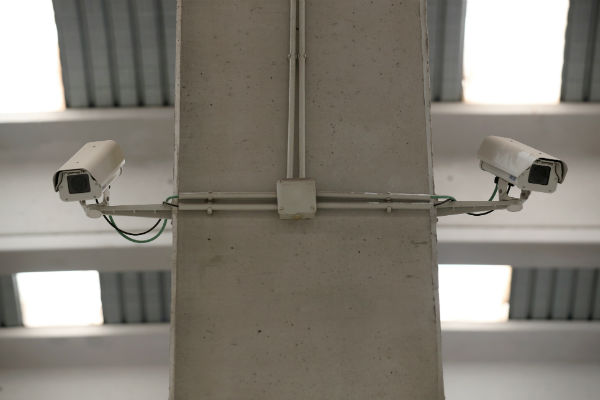Surveillance video meant to protect confidential files in office catches employees having sex

An employer installs video surveillance in his office with the intent to catch any employees rifling through his private file cabinet. What is caught on tape is two employees doing something entirely different. Can the employer use this footage as evidence to terminate the two employees for just cause? An arbitration board's interim decision in Vernon Professional Firefighters' Assn., IAFF, Local 1517 and Vernon (City) says yes.
In September 2017, the Interim Fire Chief of the City of Vernon, B.C., entered his office and found his file cabinet unlocked. It was usually locked because it contained confidential and sensitive information.
There had been issues in the past with the workplace culture in the Vernon fire station. The new chief wanted to foster a culture of openness. That's why he kept his office door open at all times, with only sensitive information behind lock and key.
In order to catch the individual going through his cabinet, should he or she strike again, the chief decided to secretly install video surveillance equipment. He locked his file cabinet and turned on the surveillance camera when he left work each day. The next day, he would review and delete the footage. This routine continued into March 2018.
Then, during a routine review of weekend surveillance video, the chief discovered two employees engaging in sexual relations in his office the previous Sunday morning. The two employees were interviewed on the Monday and dismissed on the Tuesday. The surveillance camera in the chief's office was removed two weeks later with deadbolts and keypads installed on the chief's office door.
The two employees grieved their terminations. The three-person arbitration board had to make an interim ruling as to whether the video footage of the two employees' sexual act was admissible as evidence of workplace misconduct.
The Firefighters' Association argued this video surveillance was not an authorized collection of personal information under B.C.'s Freedom of Information and Protection of Privacy Act. The city had unreasonably invaded the employees' privacy by installing surreptitious video surveillance when there was no substantial issue in the workplace.
The city argued there was a reasonable suspicion of serious misconduct that justified the limited invasion of employees' privacy when in the chief's office for brief periods of time. Catching the "confidential information thief" was a legitimate objective, and there was no other effective alternative to get reliable information.
The majority of the board ruled the video evidence was permissible under the act and was admissible at arbitration. The collection of personal information indirectly (versus direct collection of personal information) was necessary; the surveillance that collected the information was a reasonable exercise of managerial authority; and it was conducted in a reasonable manner.
What can employers take away?
The arbitration board identified seven factors to consider when determining whether an employer's collection of personal information through surreptitious surveillance is necessary and reasonable in the circumstances:
-
Reasons for the surveillance (the basis for the suspicion supporting the decision)
-
Efforts made to address the problem in other ways 2018
-
Availability of other sources of information
-
Employee expectations of privacy at the time and place of the surveillance
-
Scope of personal information collected (i.e. all employees or only employees about whom the employer has a suspicion)
-
Extent of intrusion into privacy (constant or intermittent); and
-
The seriousness of loss of privacy by employees captured by the surveillance.
The employer has the onus to establish that, in weighing these factors, the balance leans in favour of the employer's interests. If it does not, or if the balance is even, the protection of employees' privacy prevails.
Before installing video cameras in the workplace, unionized employers should review any collective agreement provisions relating to video surveillance in the workplace. You should also consider applicable privacy legislation (especially if the employer is a public entity). Balance the employer's managerial authority against the privacy interests of employees, using the above factors as a guide.
For more information see:
-
Vernon Professional Firefighters' Assn., IAFF, Local 1517 and Vernon (City), 2018 CarswellBC 2988 (B.C. Arb.).
Alyssa LeBlanc maintains a broad practice in management-side labour, employment and human rights matters with Fasken in Toronto. She can be reached at (416) 868-7852 or [email protected]. This article was reprinted with the permission of Fasken. Fasken is one of the world's leading international business law and litigation firms. You can read Fasken's weekly bulletin, "The HR Space" here.




